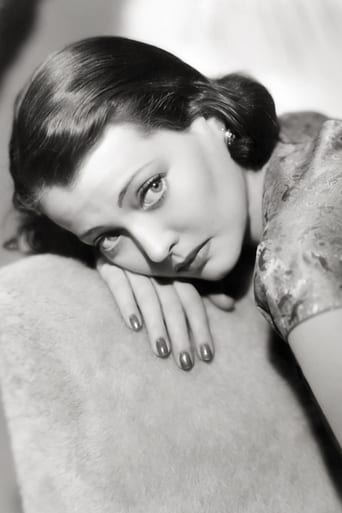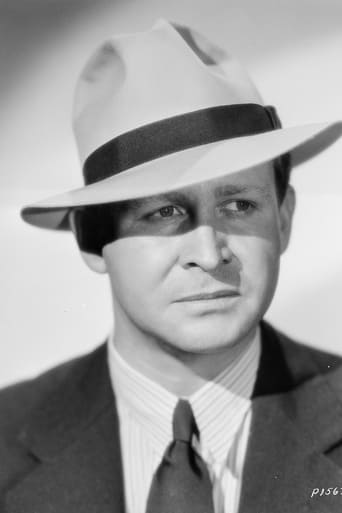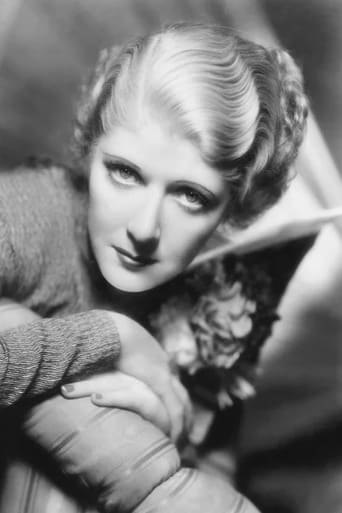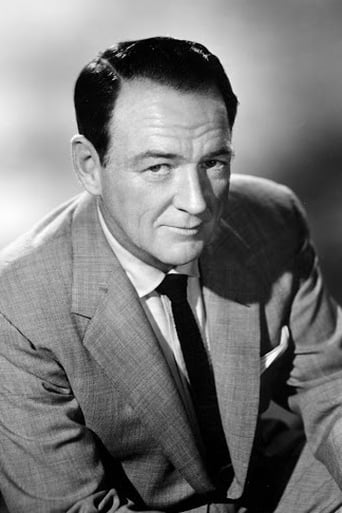Evengyny
Thanks for the memories!
AnhartLinkin
This story has more twists and turns than a second-rate soap opera.
Quiet Muffin
This movie tries so hard to be funny, yet it falls flat every time. Just another example of recycled ideas repackaged with women in an attempt to appeal to a certain audience.
Kinley
This movie feels like it was made purely to piss off people who want good shows
Spikeopath
You Only Live Once is directed by Fritz Lang and written by C. Graham Baker and Gene Towne. It stars Sylvia Sidney, Henry Fonda, Barton MacLane, Jean Dixon and William Gargan. Music is by Alfred Newman and cinematography by Leon Shamroy. He has been pounding on the door of that execution chamber since the day he was born. One of Fritz Lang's first American productions is a cracker-jack proto- noir, a leading light (darkly shaded of course) in the sub-genre of fugitive lovers on the lam pictures. Story leans on the legend of Bonnie and Clyde and finds Fonda as three times jailbird Eddie Taylor. After strings are pulled and promises made, Eddie gets released into the arms of his adoring gal, Jo Graham (Sidney). Determined to go straight and settle down with Jo, Eddie finds a society not ready to forgive and forget, worst still, he's old comrades in criminal arms have cooked something up and it's not going to be good news for Eddie. Cue the Romeo & Juliet factor as two lovers love each other so much they will stop at nothing to be together and to try and make the other one happy. Lang brings his expressionistic bent to the tragi noir tale, drifting fogs, mists and spider web shadows across key scenes. Canted angles feature, reflections in a psychological eye also play their part, while the protection of animals theme – and the continuing frog motif - further strengthens the otherworldly – cum - nightmarish aura that so often permeated Lang's movies. The action scenes are deftly marshalled by the director, with a smoke grenade led robbery and a prison escape particularly worthy of luring you to the end of your seat. Lang also gets fine performances from his lead actors, Sidney is not done too many favours by the screenplay, where she is saddled with one of those compliant love interest roles, but she brings a quality to her scenes with Fonda that earns respect. Fonda is great in what is a two- fold role, shifting skilfully between a tender lover to an embittered man, he's a triumphant fulcrum for all the various strands that Lang is weaving together. It has been argued that it's a film that's too morally grey, but as film noir lovers will tell you, this is no bad thing, especially when Lang marries up his superb visuals with alienation, fatalism and pessimism. Historically important to film noir and Lang fans, You Only Live Once is an ambiguous gem. 9/10
jimakros
this is one those movies where you can go terribly wrong,because of the director and the stars.I mean,how bad can a movie be with Henry Fonda and Sylvia Sidney?.Well,it can be awful,when the story doesn't make any sense at all.Its just totally ridiculous from beginning to end.Fonda plays an ex-convict who does one stupid thing after another,and whose life is miserable beyond belief, because of some divine bad luck.There's no point going over the story,its hard to understand what this movie wants to say,seemingly that some people are born to be criminals and end up badly.Which is load of crap of course.I was so disappointed to see two wonderful stars in this horrible movie.
ALauff
In this doomed love story of an ex-con (Henry Fonda) trapped in a world that won't forgive or forget and the woman (Sylvia Sidney) unconditionally bound to him, Lang sees the criminal potential in everyone, from the neighborhood cop who swipes apples from an immigrant fruit-seller, to the station attendants who exploit the couple's gunpoint gasoline theft for a payday of their own, to the guards who leer over Henry Fonda's supine form as it awaits escort to the chair. The whole world is on trial, and found guilty. Heroes and villains are splintered into categories of those who are punished for their crimes unto mortal eternity, and those who persist in petty, under-the-table wrongdoings within society's aegis. In the former category are the protagonists: Eddie, just notified of his exoneration from bogus murder charges, kills the kindly priest in a moment of disbelieving panic; Jo leaves her baby behind to prolong the adventure of a fugitive romance. Prior to these events, Eddie endeavors to go straight and set up a homestead, but his attempts to reform are blocked at every turn by exploiters and busybodies who forbid his dream of a quiet, quotidian existence. His life is reduced to the confines of a spare room, existence an unending rebuke. Lang empathizes with Eddie and Jo not because of their purity—anathema to Lang's worldview—but because of their faith in one another, which transcends the human birthrights of petty malfeasance and self-interest.The film's structure is dauntingly clear yet purposeful, provocatively reenacting one crucial decision in order to illustrate the immutability of Eddie's fate. Following a rain-soaked bank robbery—one of several violent, weather-determined setpieces; here, Lang rhymes a wipe edit with the getaway car's flattening of a cop—all evidence points to Eddie's involvement in the crime, which resulted in six casualties. Innocent but determined to flee the fourth-strike rule and certain death, Eddie equivocates just long enough to be apprehended. His jailbreak on the eve of execution is punctuated by his first murder, necessitating his going on the lam—an initially voluntary choice recast as mandatory destiny. Innocence leads to a death sentence; guilt leads to literal death. A miracle is offered, but it arrives when he's distracted, at his most hopeless. And death becomes all, as an outcome of running and not running—living is the farthest idea from mind.But it's living, Lang finally expresses, even at its most miserably futile, that affords grace. Jo resurrects Eddie from his boxcar tomb with exhortations to live for as far as roads will take them, perhaps all the way to border freedom. Those back roads open up to country vistas, Eddie's predominant mode of physical confinement recedes, and life is simplified to necessities of the moment. This serene spartan outlook radiates through the film's last scenes, as Eddie and Jo suffer their last trial, as Eddie gazes off inscrutably from a hilltop, still trying to elude his pursuers. Piercing through this tragedy is the return of the once-unnoticed miracle: Eddie's moment of grace revealed as deliverance from humanity's mudded reflection into spotless rebirth. At once a relieved affirmation of the film's title—i.e., the Langian notion that in death we will all one day blissfully escape mankind's stark judgments—and stunning evidence of a heretofore unseen Christian sensibility, Eddie's contented exodus from a damned life gives the priest the last word: death is renewal.
jc-osms
One of my very favourite films and further proof, if needed, that Fritz Lang did not leave his best work behind in Germany when he fled the Nazis for Hollywood in the early 30's. I could eulogise all day about the cinematography, but that would do a disservice to a strong narrative which seems to give a mild contemporary nod to the recently slain Bonnie and Clyde and some terrific acting especially by the two leads. There are so many shots to savour, I'll name just a few which caused me an admiring intake of breath;- for example the scene early in the film with a reflected image of the at that point still optimistic newly-weds sitting by the frog-pond, the expressionist use of shadows seemingly radiating out from Fonda's cell as he paces it in frustration and what may have been the first cinematic use of the three possible "Hold the front page" headlines in the press depending on the outcome of Fonda's trial plus of course the rightly famous eerie smoky set-piece where Fonda panics and shoots his friend the prison priest. Even simple framing shots (one of Sydney to camera looking into the runaway couple's car from Fonda's viewpoint, for example) are delivered with style and finesse, there's no question there's mastery at work here. The acting by Sydney and Fonda is great, passionate, completely in character and utterly convincing in conveying the depth of their relationship, crucial considering the incredible demands Fonda's character makes of the law-abiding Sydney. Who got the Oscars in their stead this year, I wonder? The bitter-sweet ending (the couple find release only in death) is absolutely right as is so much of this bravura Fritz Lang feature. Students of film noir can learn much from this dark and compelling work, all delivered in 86 engrossing minutes.






